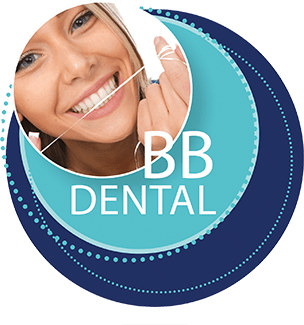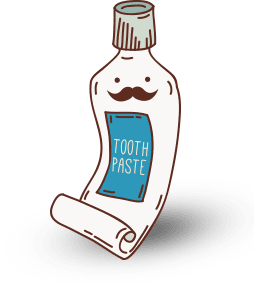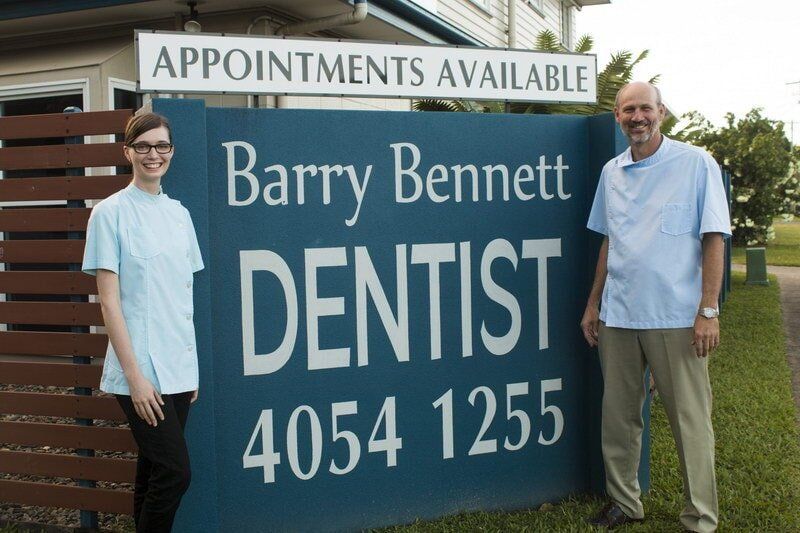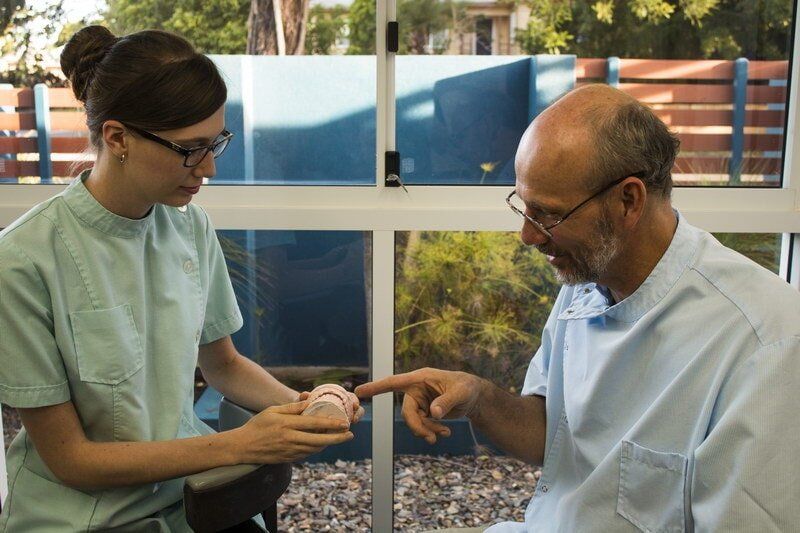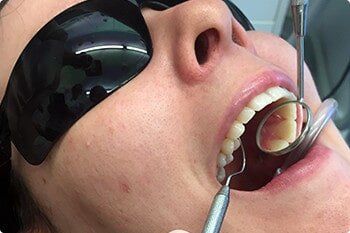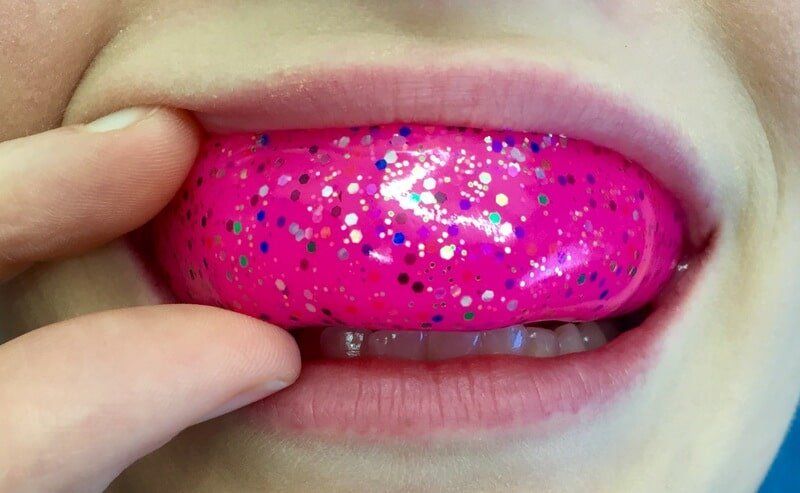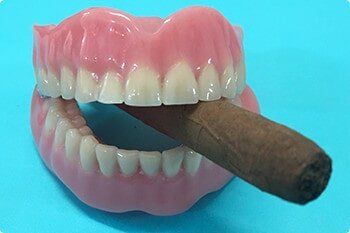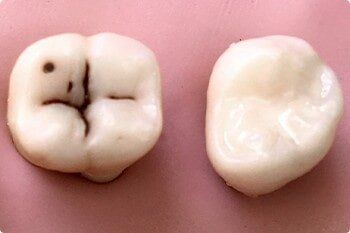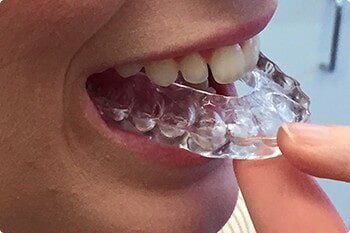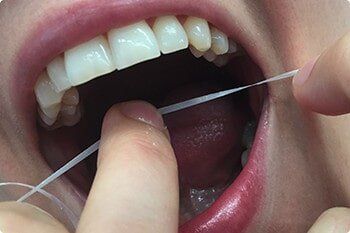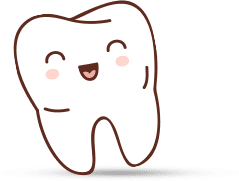- FAQ -
There are many questions our patients have when they come to visit BB Dental Cairns Dentists. We have compiled a list of the most frequently asked questions about oral health, dental care and dentistry treatments, along with their answers. This information is a general guide, so if you have a specific question or concern, please speak to our receptionists or make an appointment with our Cairns dentists today.
Dentistry & Pregnancy Questions
1
Should I see a dentist if I am trying to get pregnant?
Yes. It is important to see your dentist for an oral examination and professional clean both prior to falling pregnant, and during your pregnancy. Inform the dentist of any oral changes. It is important to keep up your good oral care habits, even though this may be difficult as morning sickness may increase the gag reflex.
Ensure you brush twice a day with a fluoride toothpaste (such as Colgate Total), floss daily and eat a balanced diet. Try to limit snacking between meals and maintain a sufficient level of calcium in the diet.
2
Is it true I will lose a tooth with each pregnancy?
No, this is an old wives' tale. Women who are prone to gingivitis (a mild form of gum disease that can cause gums to be red or bleed when brushing) may experience bleeding, as the gums can become more tender during pregnancy. Your dentist may suggest more frequent cleaning to help control gingivitis.
Pregnant women also have an increased risk of tooth decay. Some patients suffer from gastric acid reflux, have cravings for sugary foods or have difficulty with oral care due to morning sickness. They may also have trouble maintaining good oral health habits once the baby is born due to lack of time.
3
Can I have dental x-rays while I am pregnant?
If you are suffering a dental emergency and there is a need for x-rays to diagnose the problem, your dentist or hygienist will take precautions. We will cover you with a leaded apron which will minimise exposure to your abdomen and thyroid. As a precaution, we generally avoid all non-urgent x-rays for pregnant patients.
4
When should you start cleaning baby's teeth/gums?
It is a good idea to use a damp wash cloth to rub over your babies gums to get them ready for when their first tooth erupts, and they get their first soft children's toothbrush. These come in wonderful colours and cartoon characters to encourage one of the most important daily routines for the rest of their life. There is no need to use toothpaste on their brush until around 18months, when a mild child strength toothpaste can be introduced.
5
When should baby have their first dental check-up?
Caring for your child's first set of deciduous (baby) teeth is important. Baby teeth maintain the positioning for the future eruption of adult teeth. Premature loss of deciduous teeth can lead to significant orthodontic problems.
Ideally a young child's first experiences of the Dentist should be positive and we encourage younger children to come in with mum or dad when they are having a check-up. The waiting room has age appropriate toys for them to play with and kids find a ride in the chair can be lots of fun.
Children who have had a positive initial experience are really comfortable to have their own dental examination at approximate age 2 years. If parents have any concerns with their child's teeth prior to 2 years of age we encourage them to bring them in for an earlier check.
6
Does it matter if my child loses a baby tooth?
The baby teeth, or deciduous teeth, hold the place for your permanent teeth. If the baby teeth are lost too early, drifting of the adult (permanent) teeth can cause crowding or crooked teeth. Taking good care of your child's teeth, helping them brush twice a day and limiting sugary foods and drinks may help them avoid dental problems as they get older. Maintaining well-functioning baby teeth allows young children to eat a wide range of foods and gives them a better chance of developing a healthy diet.
We suggest that your child has their first 'ride in the chair' (dental appointment) at 2 years. We also recommend you child has a regular 6-monthly check-ups and clean once they reach 4 years. This should help them feel comfortable in a dental environment.
Dental Treatments & Oral Health Conditions
1.
Should I wear a mouthguard when I play sport?
2.
Are bad bites/crooked teeth (or Malocclusions) a problem?
3.
Is whitening my teeth safe?
4.
Is smoking bad for my mouth?
5.
What is a dental implant?
6.
What is a crown?
7.
What is a bridge?
8.
What is a fissure sealant and does it hurt to have one put on?
9.
Should I be scared about root canal therapy?
10.
What do I do if I knock out my permanent (adult) tooth?
1
Should I wear a mouthguard when I play sport?
We recommend wearing a custom-fitted mouthguard during all sporting events. This reduces the risk of damage should you suffer a blow to the face. If unprotected, a blow to the face can result in a split lip, cracked tooth or worse.
It may feel bulky at first, but a custom-fitted mouthguard is the best thing you can do to protect your teeth while playing sport. The Australian Dental Association recommends that only a professionally-fitted mouthguard be worn, as it will provide the greatest level of protection. Custom mouthguards are not as easily dislodged by impact. They are much more comfortable and therefore far more likely to be worn. Take your mouthguard with you to your dental appointments. This way, your dentist can check it is still offering the best fit and protection.
2
Are bad bites/crooked teeth (or Malocclusions) a problem?
If not treated early, a bad bite can make it difficult to clean around crooked teeth. This is not only a cosmetic issue, it also increases the risk of decay and gum disease. Talk to BB Dental Cairns Dentists about suitable treatments.
3
Is whitening my teeth safe?
While over-the-counter whitening methods are usually safe, there are situations where whitening can cause significant sensitivity. There is considerable variability in the sensitivity risks of differing bleach formulations. It is advisable to have your teeth assessed prior to starting any whitening treatments. Over-the-counter bleaches can be ineffective if you have had bonding or tooth coloured fillings in your front teeth; the whitener will not lighten these materials. This causes variation in the colour of the teeth. If you are considering whitening your teeth, speak to your dentist first. We can recommend the most suitable options for you.
4
Is smoking bad for my mouth?
All tobacco products are bad for your dental and physical health, including the smokeless tobacco. If you are (or have been) a smoker, it is recommended that you have an oral cancer check while visiting your dentist. Smokers are six times more likely to have serious gum (periodontal) disease.
Smokers may also find their teeth are stained. Staining of the teeth can be removed if it is superficial. Unfortunately, as the years progress, the staining tends to spread into the microscopic cracks of the enamel (the outer layer of the teeth) and stains the inner porous dentine, making it more difficult to remove.
5
What is a dental implant?
A dental implant is a titanium artificial root which can be used to replace one or more missing natural teeth. There is an exceedingly wide range of restorative options that can be attached to the implant to replace missing teeth.
6
What is a crown?
A crown is a thin layer of a hard, strong material (typically gold, porcelain or zirconia) that covers the entire outer surface of the tooth. Crowns are typically provided for a tooth that has been damaged and weakened by cracks or excessive large fillings. Crowns help to hold the tooth together and prolong its life expectancy.
7
What is a bridge?
In dentistry, a bridge is used to replace 1 or 2 missing teeth. It consists of a crown on the tooth either side of the space, plus a replacement tooth to fill the space. It is cemented to natural teeth so it does not move. Bridges are not bulky like dentures and are very commonly used.
8
What is a fissure sealant and does it hurt to have one put on?
Sealing the pits and fissures of the top of adult (permanent) teeth with a bonded resin is fast, easy and painless. Sealants act as a barrier to cavity prone areas and protect the teeth from decay. At BB Dental Cairns Dentists, we often apply fissure sealants to reduce the risk of tooth decay in children. If your child is eligible for the Child Dental Benefits Scheme, this procedure is covered by Medicare. Our clinic offers bulk-billing to eligible patients.
9
Should I be scared about root canal therapy?
No. Not at all. Root Canal Therapy (RCT or Endodontics) is now a routine and common dental treatment for most dental practices. The process is used to save a tooth that has a dying nerve, which will become abscessed if not treated. Good anaesthesia ensures the process is relatively painless. Recent innovations with rotary files have streamlined the treatment, making it more comfortable than earlier techniques.
10
What do I do if I knock out my permanent (adult) tooth?
Pick up tooth by the crown not the root. Rinse entire tooth in milk, saliva or suck it clean (do not use ice or hot water).
Place tooth back in socket within 5 - 10 minutes of accident. Hold in place by gently biting in or with soft cloth, check that the tooth is the right way round.
If you are unable to place tooth back in socket, wrap in glad wrap with your saliva or keep tooth in mouth between the cheek and teeth.
Immediate dental treatment is critical to minimize permanent damage.
Monday to Friday - Barry Bennett Dental Ph: (07) 4054 1255
After Hours - Cairns Base Hospital Emergency Department Ph: (07) 4226 0000
Dental Treatments & Oral Health Conditions
1.
Should I wear a mouthguard when I play sport?
2.
Are bad bites/crooked teeth (or Malocclusions) a problem?
3.
Is whitening my teeth safe?
4.
Is smoking bad for my mouth?
5.
What is a dental implant?
6.
What is a crown?
7.
What is a bridge?
8.
What is a fissure sealant and does it hurt to have one put on?
9.
Should I be scared about root canal therapy?
10.
What do I do if I knock out my permanent (adult) tooth?
1
Should I wear a mouthguard when I play sport?
We recommend wearing a custom-fitted mouthguard during all sporting events. This reduces the risk of damage should you suffer a blow to the face. If unprotected, a blow to the face can result in a split lip, cracked tooth or worse.
It may feel bulky at first, but a custom-fitted mouthguard is the best thing you can do to protect your teeth while playing sport. The Australian Dental Association recommends that only a professionally-fitted mouthguard be worn, as it will provide the greatest level of protection. Custom mouthguards are not as easily dislodged by impact. They are much more comfortable and therefore far more likely to be worn. Take your mouthguard with you to your dental appointments. This way, your dentist can check it is still offering the best fit and protection.
2
Are bad bites/crooked teeth (or Malocclusions) a problem?
If not treated early, a bad bite can make it difficult to clean around crooked teeth. This is not only a cosmetic issue, it also increases the risk of decay and gum disease. Talk to BB Dental Cairns Dentists about suitable treatments.
3
Is whitening my teeth safe?
While over-the-counter whitening methods are usually safe, there are situations where whitening can cause significant sensitivity. There is considerable variability in the sensitivity risks of differing bleach formulations. It is advisable to have your teeth assessed prior to starting any whitening treatments. Over-the-counter bleaches can be ineffective if you have had bonding or tooth coloured fillings in your front teeth; the whitener will not lighten these materials. This causes variation in the colour of the teeth. If you are considering whitening your teeth, speak to your dentist first. We can recommend the most suitable options for you.
4
Is smoking bad for my mouth?
All tobacco products are bad for your dental and physical health, including the smokeless tobacco. If you are (or have been) a smoker, it is recommended that you have an oral cancer check while visiting your dentist. Smokers are six times more likely to have serious gum (periodontal) disease.
Smokers may also find their teeth are stained. Staining of the teeth can be removed if it is superficial. Unfortunately, as the years progress, the staining tends to spread into the microscopic cracks of the enamel (the outer layer of the teeth) and stains the inner porous dentine, making it more difficult to remove.
5
What is a dental implant?
A dental implant is a titanium artificial root which can be used to replace one or more missing natural teeth. There is an exceedingly wide range of restorative options that can be attached to the implant to replace missing teeth.
6
What is a crown?
A crown is a thin layer of a hard, strong material (typically gold, porcelain or zirconia) that covers the entire outer surface of the tooth. Crowns are typically provided for a tooth that has been damaged and weakened by cracks or excessive large fillings. Crowns help to hold the tooth together and prolong its life expectancy.
7
What is a bridge?
In dentistry, a bridge is used to replace 1 or 2 missing teeth. It consists of a crown on the tooth either side of the space, plus a replacement tooth to fill the space. It is cemented to natural teeth so it does not move. Bridges are not bulky like dentures and are very commonly used.
8
What is a fissure sealant and does it hurt to have one put on?
Sealing the pits and fissures of the top of adult (permanent) teeth with a bonded resin is fast, easy and painless. Sealants act as a barrier to cavity prone areas and protect the teeth from decay. At BB Dental Cairns Dentists, we often apply fissure sealants to reduce the risk of tooth decay in children. If your child is eligible for the Child Dental Benefits Scheme, this procedure is covered by Medicare. Our clinic offers bulk-billing to eligible patients.
9
Should I be scared about root canal therapy?
No. Not at all. Root Canal Therapy (RCT or Endodontics) is now a routine and common dental treatment for most dental practices. The process is used to save a tooth that has a dying nerve, which will become abscessed if not treated. Good anaesthesia ensures the process is relatively painless. Recent innovations with rotary files have streamlined the treatment, making it more comfortable than earlier techniques.
10
What do I do if I knock out my permanent (adult) tooth?
Pick up tooth by the crown not the root. Rinse entire tooth in milk, saliva or suck it clean (do not use ice or hot water).
Place tooth back in socket within 5 - 10 minutes of accident. Hold in place by gently biting in or with soft cloth, check that the tooth is the right way round.
If you are unable to place tooth back in socket, wrap in glad wrap with your saliva or keep tooth in mouth between the cheek and teeth.
Immediate dental treatment is critical to minimize permanent damage.
Monday to Friday - Barry Bennett Dental Ph: (07) 4054 1255
After Hours - Cairns Base Hospital Emergency Department Ph: (07) 4226 0000
Sensitive Teeth, Tooth Decay & Diet
- I have very sensitive teeth, can I do anything to reduce this?
- Why does my back tooth sometimes hurt when I bite hard foods and react to temperature extremes (hot and cold)?
- Why do I wake up with an earache, headache, jaw pain or a dull ache in my teeth?
- Does the sugar in my food or drink (lollies, soft drink etc) cause cavities?
- Do energy drinks cause decay?
- Is there a way to reduce the risk of cavities?
- Will I outgrow tooth decay?
- Is fluoride good for my teeth?
- Do all wisdom teeth require removal?
- If I don't have a sore tooth, is there a need to see a dentist?
1
I have very sensitive teeth, can I do anything to reduce this?
0666There are several causes of sensitivity, including decay and cracked teeth. Both of these problems require attention from your dentist. Another very common cause of sensitivity is gum recession as a result of gum (periodontal) disease or over-vigorous brushing with a hard toothbrush. Acids in the diet and over-abrasive toothpastes will also increase sensitivity. The most effective toothpaste for sensitive teeth is Colgate Pro-Relief Toothpaste. Visit BB Dental Cairns Dentists to have your teeth checked for any further concerns-your dentist can then explain the best way to treat your sensitivity issue.
2
Why does my back tooth sometimes hurt when I bite hard foods and react to temperature extremes (hot and cold)?
This is caused by a crack in the tooth (cracked tooth syndrome), which is a result of high biting forces over a period of time. The most likely causes are bruxism (clenching the teeth at night) and large fillings in teeth. Some of the treatment options for a cracked tooth include a crown (long term) or a large filling (short term). If left untreated, a cracked tooth will eventually require extraction or root canal treatment.
3
Why do I wake up with an earache, headache, jaw pain or a dull ache in my teeth?
This common problem is due to excessive loading caused by bruxism (clenching or grinding the teeth at night). Use of a night guard (occlusal splint) worn at bedtime can reduce the loading and resolve symptoms. Bite irregularities can also contribute to the problem and may require modification.
4
Does the sugar in my food or drink (lollies, soft drink etc) cause cavities?
Tooth decay is a result of damage to the enamel, which is a result of acid attacks. This acid is caused by bacteria forming on your teeth, which is fed by the sugars and carbohydrates found in the food we eat. The enamel in your teeth is attacked by acid up to 40 minutes after consuming sugars.
5
Do energy drinks cause decay?
Energy drinks are high in both sugar and acid, which causes the fast build up of bacteria and damages your tooth's enamel. Too many sugary drinks speed up the growth of bacteria, so it is very important to limit the amount you consume. When you do drink soft drinks or energy drinks, rinse your mouth with water afterwards. Regular brushing with a fluoride toothpaste can also protect your teeth.
6
Is there a way to reduce the risk of cavities?
Yes, you can reduce the decay rate of your teeth. The best way is by following a healthy diet. Reducing the amount and frequency of sugar and carbohydrates is important. It is also very important to follow good dental hygiene measures such as brushing, flossing, and using piksters and water picks. Use of Tooth Mousse Plus, bicarbonate mouthwashes and high fluoride toothpaste and mouthwash is also highly effective. Your dentist and oral hygienist can give advice on which options are best suited to you.
7
Will I outgrow tooth decay?
Unfortunately, the fact is we don't. Tooth decay doesn't care how old we are, so it is a good idea to develop good dental habits early in life. People with a penchant for sweeter foods will also be at a higher risk of tooth decay. There are many potential causes of tooth decay, including low saliva flow, dehydration, medication, advancing age or cancer therapy.
Make sure you brush your teeth twice daily with fluoride toothpaste (such as Colgate Total) for at least two minutes. The daily use of Tooth Mousse Plus creme or a bicarbonate of soda mouthwash can greatly reduce the decay risk and any associated sensitivity.
8
Is fluoride good for my teeth?
Fluoride is effective at reducing dental decay, as it can strengthen the enamel. There are a number of ways of applying fluoride, and your dentist or oral hygienist can advise which is the most appropriate for your situation.
9
Do all wisdom teeth require removal?
Assessment by a dentist is advisable as the majority of wisdom teeth do require extraction, but it may not be necessary in some cases. An x-ray during the teenage years is advisable to assess any space and angulation issues that are associated with wisdom teeth growth.
10
If I don't have a sore tooth, is there a need to see a dentist?
Don't wait for your teeth to hurt before seeing a dentist! In many cases, by the time you are in pain you are likely to have a sizeable cavity or gum disease, requiring extensive treatment. To avoid this, make sure to have your teeth checked regularly. We usually recommend a visit every 6-months where preventive measures can help to greatly reduce both the amount and cost of future dental treatments.
